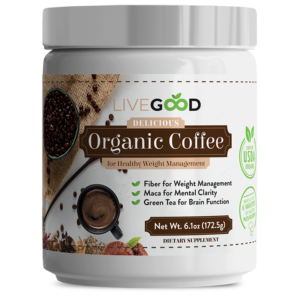Organic coffee has become increasingly popular in recent years due to growing concerns about the environment and the health implications of consuming products that are not organically grown. Organic coffee is coffee that has been grown without the use of synthetic pesticides, fertilizers, or other harmful chemicals. It is often produced by small-scale farmers who prioritize sustainable and environmentally-friendly farming practices.
What is Organic coffee & benefits?
One of the main benefits of organic coffee is that it is better for the environment. The use of synthetic pesticides and fertilizers can have a negative impact on the surrounding ecosystems by polluting waterways and harming wildlife. Organic farming practices, on the other hand, are designed to work with the natural ecosystem and promote biodiversity. This means that organic coffee farms are often home to a variety of plant and animal species, which helps to maintain a healthy and balanced ecosystem.
Another benefit of organic coffee is that it is healthier for consumers.
When coffee is grown with synthetic pesticides and fertilizers, these chemicals can remain on the beans and be passed on to the people who consume them. This can have negative health effects, especially if someone is consuming large amounts of coffee on a daily basis. Organic coffee, on the other hand, is free from these harmful chemicals, which makes it a healthier choice for coffee drinkers.
Organic coffee is also often grown by small-scale farmers who prioritize sustainable farming practices. This means that they are more likely to use techniques like shade-grown coffee, which involves growing coffee plants under a canopy of trees. This not only helps to protect the environment by preserving natural habitats, but it also produces coffee that is richer in flavor and lower in acidity. Additionally, small-scale farmers are often paid a fair price for their coffee, which helps to support local communities and promote economic development.
There are also a number of social and ethical benefits to choosing organic coffee. Many small-scale farmers who produce organic coffee are located in developing countries, where they may face challenges like poverty and limited access to resources. By choosing organic coffee, consumers can help to support these farmers and their communities, which can have a positive impact on the local economy and quality of life.
In addition to these benefits,
organic coffee is also often higher in quality than conventionally-grown coffee. This is because organic farming practices prioritize soil health and fertility, which can result in healthier and more robust coffee plants. Additionally, because organic coffee is often grown by small-scale farmers, it is often produced using traditional and time-tested methods that result in a superior product.
Despite the many benefits of organic coffee, there are also some challenges associated with producing and consuming it. One of the main challenges is that organic farming practices can be more labor-intensive and costly than conventional farming practices. This can make organic coffee more expensive for consumers, which may limit its accessibility to some people.
Another challenge is that organic coffee can be more difficult to produce and transport than conventionally-grown coffee. Because organic farming practices prioritize soil health and biodiversity, it may take longer for organic coffee plants to mature and produce coffee beans. Additionally, organic coffee may be more vulnerable to pests and diseases, which can lead to lower yields and higher costs for farmers.
Despite these challenges
Organic coffee remains a popular and growing segment of the coffee market. As consumers become more aware of the benefits of choosing organic products, demand for organic coffee is likely to continue to increase. Additionally, as more farmers adopt sustainable and environmentally-friendly farming practices, the production of organic coffee may become more efficient and cost-effective.
In conclusion,
organic coffee is a healthier, more environmentally-friendly, and socially responsible alternative to conventionally-grown coffee. It is produced using sustainable farming practices that prioritize soil health, biodiversity, and fair labor practices. While organic coffee may be more expensive and challenging to produce than conventionally-grown coffee, the benefits to the environment, consumer health, and local





Pingback: Homemade Face Pack For Tan Removal and Glowing Skin - loseweightmealplan.com
This post is extremely informative and well-researched. I enjoyed reading it and gained a lot from it.